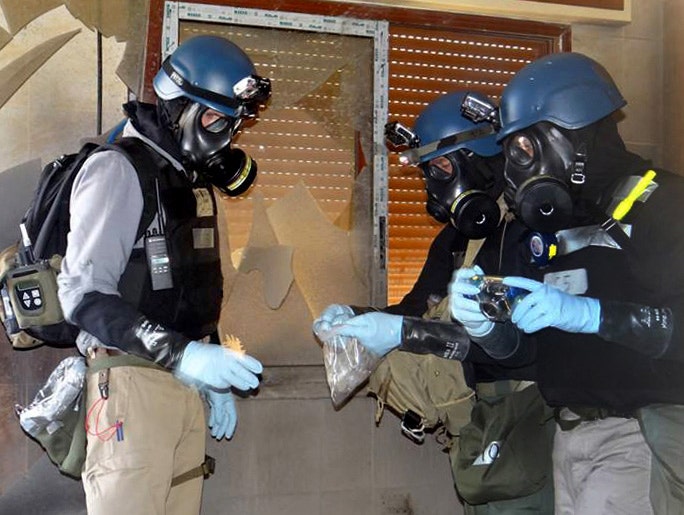Syria’s unaccounted for chemical weapons ‘extremely worrying,’ UN official says

The regime of Syrian dictator Bashar al-Assad has finally fallen after more than 13 years of civil war and nearly 54 years of his family’s dynastic rule. While many Syrians and members of the Syrian diaspora celebrated the downfall of his brutal dictatorship, concerns are now arising about the fate of Assad’s substantial stockpile of chemical weapons.
The Organization for the Prohibition of Chemical Weapons (OPCW) is closely monitoring the situation in Syria, particularly the status of its chemical weapons. Despite the reported destruction of large quantities of chemical weapons by Syria, the OPCW has been unable to verify these claims, which is extremely concerning.
U.N. high representative for Disarmament Affairs, Izumi Nakamitsu, emphasized the uncertainty surrounding Syria’s chemical weapons stockpile, stating that it cannot be confirmed whether all weapons have been destroyed. This lack of verification raises serious proliferation risks and poses a threat to regional and global security.
Secretary of State Antony Blinken has pledged U.S. support for international efforts to hold the Assad regime and its backers accountable for atrocities committed against the Syrian people, including the use of chemical weapons. However, the specific details of Assad’s remaining chemical weapons are still unknown following his regime’s collapse and his escape to Moscow.
Despite Syria joining the Chemical Weapons Convention in 2013 and agreeing to destroy over 1,300 tons of chemical weapons in 2014, there are lingering concerns about the completeness of Syria’s initial declaration and the whereabouts of significant amounts of chemical weapons that remain unaccounted for.
The fear of chemical weapons falling into the wrong hands, particularly terrorist groups like ISIS, is a major concern for the international community. The rebel group Hayat Tahrir al-Sham (HTS), which played a key role in overthrowing Assad, has pledged not to use any remaining chemical weapons and has committed to working with the international community to secure the sites.
However, doubts remain about the reliability of assurances from HTS, given its past ties to al Qaeda and its designation as a terrorist organization by the U.S. State Department. Some experts are calling for the U.S. to collaborate with Israel to destroy any remaining Syrian chemical weapons capabilities to prevent them from being exploited by malicious actors.
The OPCW has documented numerous instances of the Assad regime using chemical weapons during the civil war, including nerve agents like sarin and choking agents like weaponized chlorine. The gruesome attack in Ghouta in August 2013, which killed over 1,400 people, serves as a stark reminder of the regime’s brutal tactics.
While Israel has conducted strikes on suspected chemical weapons sites in Syria, the U.S. has not yet targeted these locations. The international community is closely monitoring the situation to prevent the proliferation of chemical weapons and hold those responsible for their use to account.
As the dust settles in Syria and the Assad regime crumbles, the fate of the country’s chemical weapons remains uncertain. The international community must remain vigilant and proactive in addressing this critical security threat to prevent further atrocities and ensure stability in the region.




